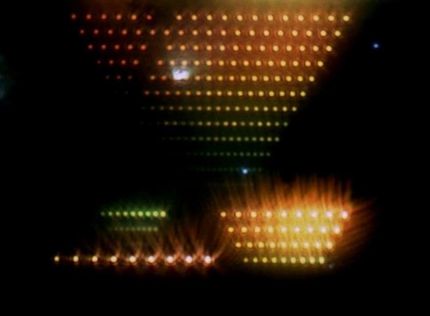Merck KGaA to acquire all outstanding Millipore shares for US$ 107 per share in cash
Combination will create a € 2.1 billion (US$ 2.9 billion) partner for the Life Science sector and transform Merck Chemicals
Merck KGaA and Millipore Corporation announced that they have entered into a definitive agreement under which Merck KGaA will acquire all outstanding shares of common stock of Millipore, for US$ 107 per share in cash, or a total transaction value, including net debt, of approximately € 5.3 billion (US$ 7.2 billion). The transaction was approved by the boards of directors of both companies. Millipore and Merck will create a € 2.1 billion (US$ 2.9 billion) worldclass partner for the life science sector, achieving significant scale in high-margin specialty products with an attractive growth profile.
“This transaction is very attractive to shareholders, customers and employees of both companies,” said Dr. Karl-Ludwig Kley, Chairman of the Executive Board of Merck. “This is a combination with an excellent strategic fit, which will allow us to cover the entire value chain for our pharma and biopharma customers, offering integrated solutions beyond chemicals.”
Millipore has a strong position in the bioresearch and bioproduction segments, offering a comprehensive range of products, technologies and services for pharma and biotech companies, as well as for academia, to improve laboratory productivity and to develop and optimize manufacturing processes. In 2009 Millipore generated sales of US$ 1.7 billion, with around 6,000 employees in more than 30 countries.
Together, Millipore and Merck will have a significant presence in high-growth segments and an enhanced geographic presence. Combining the research and development capabilities of both companies will create a powerful innovation platform to develop cutting-edge technologies that are tailored even more closely to the needs of customers.
The acquisition is fully in line with Merck’s strategy of focusing on high-margin, specialty products with an attractive growth profile. In addition, the transaction will lead to a more balanced business profile for the Group. Currently the Chemicals business sector generates around 25% of Merck’s total revenues. Following the transaction, the chemicals business will contribute 35% of total Group revenues of € 8.9 billion (pro forma), driven by its strong Liquid Crystals business and the new world-class life science business.
In order to ensure a seamless integration of the two businesses, Merck will apply a “best of both worlds” integration approach across all operating business functions. Merck plans to build on Millipore’s talented workforce and intends to retain its senior management. The company also plans to maintain Millipore’s headquarters in Billerica and combine it with Merck’s U.S. chemicals headquarters. Merck expects that the combined business will generate annual cost synergies of around US$ 100 million (€ 75 million), which Merck expects to realize within three years from the closing of the transaction.
The acquisition will be funded through available cash and a term loan provided by Bank of America Merrill Lynch, BNP Paribas and Commerzbank Aktiengesellschaft. Merck plans to replace part of the facility through the issuance of bonds. Merck is committed to retaining a solid investment-grade rating.
Completion of the acquisition requires the approval of Millipore shareholders, for which Millipore will call a special shareholders meeting, and the satisfaction of other customary conditions, including antitrust clearance. Due to the fact that the two businesses are highly complementary, Merck expects that the transaction will clear regulatory review. Merck anticipates that the transaction will be completed in the second half of 2010, at which time all outstanding shares of Millipore common stock will be exchanged for the right to receive the agreed cash payment.
Most read news
Topics
Organizations
Other news from the department business & finance

Get the analytics and lab tech industry in your inbox
By submitting this form you agree that LUMITOS AG will send you the newsletter(s) selected above by email. Your data will not be passed on to third parties. Your data will be stored and processed in accordance with our data protection regulations. LUMITOS may contact you by email for the purpose of advertising or market and opinion surveys. You can revoke your consent at any time without giving reasons to LUMITOS AG, Ernst-Augustin-Str. 2, 12489 Berlin, Germany or by e-mail at revoke@lumitos.com with effect for the future. In addition, each email contains a link to unsubscribe from the corresponding newsletter.



























































